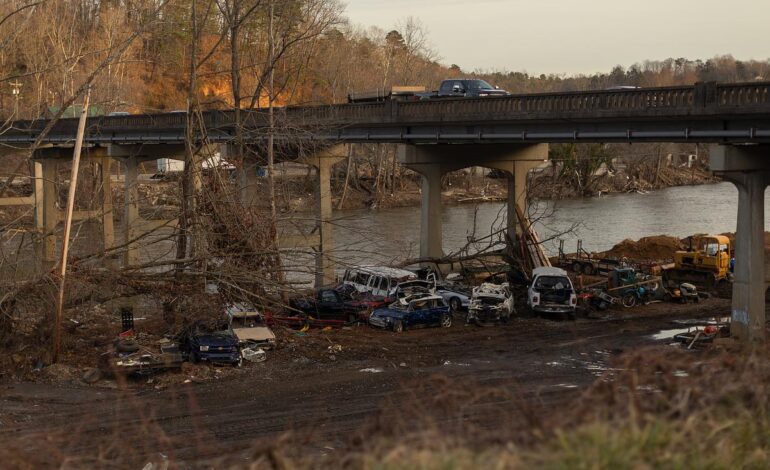Urgent Update: Western NC Leaders Fear Unpreparedness for Future Disasters

UPDATE: Leaders in Western North Carolina are sounding the alarm over a critical lack of preparedness for future natural disasters, just over a year after the devastating Hurricane Helene. Ricardo Bello Ball of the organization Unidxs warns that rural communities are still vulnerable, stating, “If another emergency happens, we’re not prepared.”
The aftermath of Hurricane Helene revealed stark deficiencies in emergency responses for the area’s large Latino population, which numbers around 56,000 but may be significantly underreported due to immigration status. Following Helene, Unidxs—serving the most rural counties including Jackson, Cherokee, and Swain—struggled to provide adequate support, now facing similar challenges as they prepare for potential future storms.
Alan Ramírez, coordinator of Casa de Apoyo Mutuo in Asheville, expressed growing anxiety about the community’s readiness. “The hurricane was unexpected, and we had to respond quickly,” he recalls. “But we are still very anxious that we’re not prepared for the next time something like this happens.”
In the wake of Helene, community resources were stretched thin. The El Porvenir community center transformed from a cultural hub to a makeshift shelter, providing essential services like phone charging and hot meals. “It took 53 days for clean water service to be restored,” Ramírez noted, emphasizing the community’s reliance on each other for help.
According to Victor Álvarez of the Comité Popular de Asheville por la Justicia Social, the long-lasting effects of the hurricane are still visible in neighborhoods. “We’re supporting families who lost everything,” he said. “To say that we’re prepared to face another hurricane of that magnitude… no, I don’t think we would be ready.”
Organizations like Vecinos are also grappling with communication failures encountered during Helene, which left many farmworkers without essential support. Director Marianne Martínez revealed that their emergency plans are still in development, with a comprehensive communication strategy needed for future crises. “We need a communication plan for crises—one that’s done thoroughly and tested,” she stated.
As the region reflects on the past year’s challenges, there is a clear consensus: community organizations must unite to bolster their response efforts. The shared sentiment is that without proper coordination and resources, Western North Carolina remains vulnerable to future disasters.
Officials and community leaders are calling for immediate action to ensure that the lessons learned from Hurricane Helene are not forgotten. The urgency of this situation cannot be overstated: if another hurricane strikes, the time to prepare is now.
Stay tuned for updates as community leaders work to strengthen their emergency response capabilities in the face of ongoing threats.






